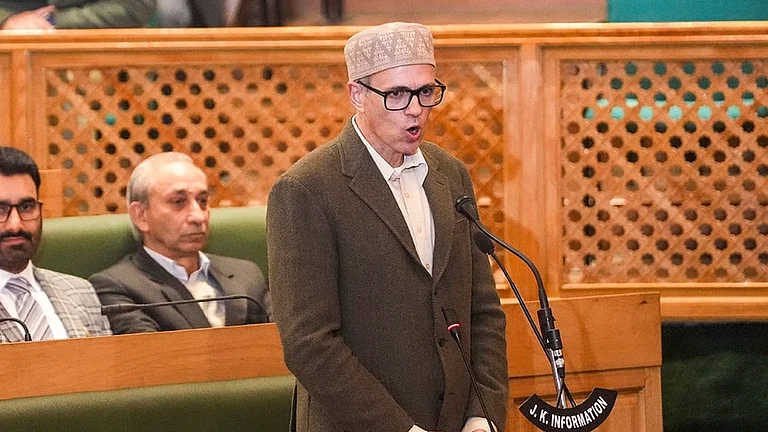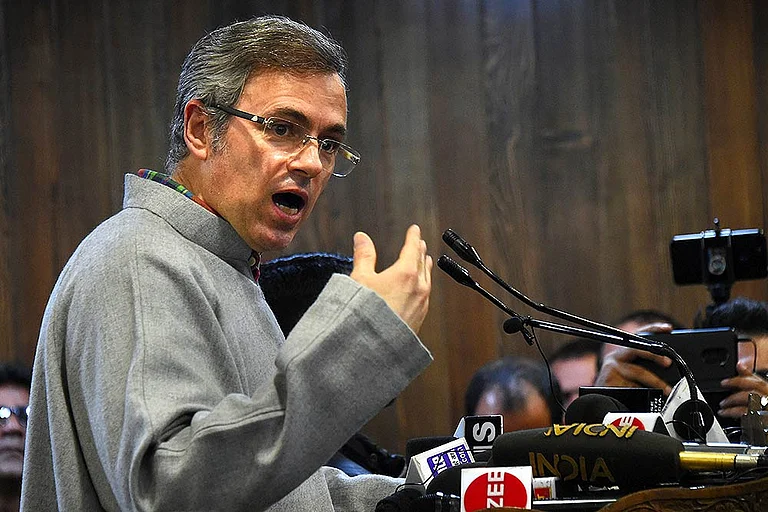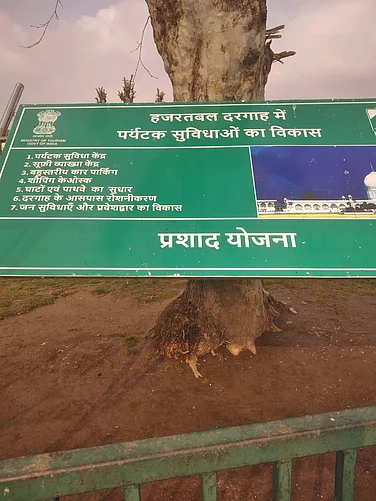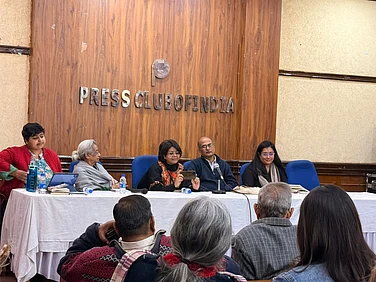On October 12, for the first time after nearly a hectic month of election campaigning, Omar Abdullah seemed relaxed. Jammu and Kashmir Chief Minister designate Omar Abdullah had some leisure moments watching “legends” of cricket having a game at Srinagar’s Bakshi Stadium. Perhaps there are lessons for J&K’s upcoming J&K CM Omar Abdullah in cricket. He is caught on a tricky wicket. In ‘gentlemen game’s’ lingo, Omar Abdullah must score runs and also save his wicket on an unfavourable pitch for batsmen. He needs to deliver on his promises at a time when the political dynamics of Valley have changed entirely post-5 August 2019. In the present situation, many believe an opportunity also lies for Omar Abdullah to emerge as the leader of “Muslim aspirations” in the country.
NC has made promises of Article 370 and Article 35-A restoration. At the same time, it has also promised the return of full statehood and good governance. Will Omar 2.0 be able to deliver on his promises at a time when Valley has reposed faith in the National Conference with a massive mandate? This is a query which may or may not be answered in upcoming days. However, what has got cleared is that Omar’s new tenure won’t be a smooth ride for him, considering the two back-to-back orders issued by Lieutenant Governor Manoj Sinha led administration in the past week. Much has changed in J&K in the past five years, and the Omar Abdullah 2.0 government perhaps must have realised it.
The orders came just after the people had voiced their opinions through ballots. For many in Jammu and Kashmir, particularly Valley, the mandate from Valley was against BJP’s decision of August 5, 2019. It was when J&K’s special status was abrogated, and the state was downgraded and divided into two UTs.
In the first order issued by the LG Sinha-led administration, an amendment was made to recruitment guidelines for the Jammu and Kashmir Police (Gazetted) Service. The Jammu and Kashmir Public Service Commission (JKPSC) has been tasked to “handle direct recruitment, while promotions will be overseen by the Departmental Promotion Committee (DPC)”. The J&K Police used to have its own recruitment board to fill vacancies. In another order, the recruitment rules were amended under the Jammu and Kashmir Civil Services (Decentralization and Recruitment) Act, 2010. The amendment empowers the J&K Service Selection Board to recruit for all Public Sector Undertakings (PSUs), government companies, corporations, boards, and organisations substantially owned or controlled by the J&K government. Besides, it also included Class IV posts, which means the new government in J&K will not be able to fill the vacant posts at even this level.
For many in Valley, there is no doubt that there would be challenging times ahead for Omar Abdullah led government, however under current political dynamics in J&K, Centre is also going to be under duress.
Political analysts in the Valley believe the Centre is bound to restore statehood, considering it lies within the ambit of the directions of the Supreme Court, which has ordered its restoration.
“Statehood has been mentioned by the Supreme Court. It was on SC’s intervention that elections were held in J&K. The same Court has mentioned that they(Centre) must restore the statehood,” says an advocate and NC supporter from Ganderbal, a constituency represented by Omar Abdullah.
At present, LG holds sway in J&K, while the government has limited powers. The 2019 Reorganisation Act has empowered LG in J&K to a large extent. Section 32 of the Act makes public order and police, the bureaucracy, and the anti-corruption bureau under LG’s control. Also, Section 36 of the Act empowers LG to deal with special provisions regarding financial bills. The Centre had limited legislative powers concerning Jammu and Kashmir under Article 370 as it stood before the abrogation.
Analysts believe that in his second tenure, Omar Abdullah will have a tough time negotiating the political divide between Srinagar and Jammu.
In the past, the mandate in Jammu would go with Congress earlier, and later, the Kashmir-based parties would form the government, taking along the Jammu mandate with them for government formation. Many believe it was the reason why the “divide” would not “dominantly surface earlier as it does now”. In recent history, the Jammu people voted for Congress in 2002, and in 2008, the Jammu chose Congress again. It was in 2014 that Jammu decided to go with BJP. It was when the PDP joined hands with the BJP to form an alliance.
“NC doesn’t have an overwhelming mandate from Jammu with them. That would be an internal challenge for Omar Abdullah as a government leader,” opines an activist from Jammu.
The question in Valley is also about what type of statehood will be restored to J&K.
A political science scholar at Bandipora, who wished anonymity, explained that if the statehood is restored to J&K as of August 5, 2019, the whole set of laws that the Centre has extended to J&K will not be operational. “Rather, the Constitution has a scheme of things for the distribution of powers between states and centres. Then that will operate,” he says.
In another case, if the Centre wants to establish statehood for J&K on a different pattern, legal experts opine that it can only be done through a constitutional amendment.
“And that amendment, whether they can have it at this juncture or not, that is another question mark because they (BJP government )don’t have the type of majority which they had previously when J&K’s special status was abrogated and downgraded from state to UT. So that is a problem for Centre,” says a senior lawyer from J&K High Court.
Omar-led government would also be in a sort of bother, considering his party has won an overwhelming majority over the restoration of Article 370 and the state’s autonomy. It would also be interesting to see whether Omar would take cajoles with the Centre for J&K’s dignity without compromising development and employment issues. Many believe it is Omar’s chance to rise to the occasion to emerge as a “hero of Kashmiri nation” without crossing New Delhi’s set red lines.
For a former J&K legislator post August 5, 2019, the legal framework has left J&K’s CM “handcuffed”, where he is a “head of just municipality”.
“With these limited powers, questions also arise: will he (Omar Abdullah) be able to satisfy the public’s wishes,” he says.
With land and policing under LG's ambit, many political analysts believe it would “emerge as a problem for Centre” rather than the Omar Abdullah 2.0 government.
A University Professor in Valley says with the changed political chessboard in J&K, things will get “difficult” for Centre.
“In it, there is also a problem for the Centre. You have to understand that J&K is a border state. In border states, we have civilian governments to enlist the support of the local population while fighting insurgency,” he says.
He adds, “Now, if a state doesn’t have law and order within its jurisdiction. For them(local government), the insurgency will be like an India-Pakistan cricket match because they will have no stakes; they can just enjoy it and maybe just sympathise with either. They will have no responsibility of maintaining law and order.”
As per the above University Professor, “If these problems arise, Centre will have no moral ground to blame local government.”
He says that the local government will blame the Centre.
“Tomorrow, if some sort of human rights case or any such incident occurs, local government will safely join people in protesting or condemning that. Can they afford Delhi-type statehood here where policing the whole security apparatus will be theirs, and the local government will be exonerated for all its responsibilities?” he says.
Many believe that it would be an arduous trek for Omar Abdullah's government to even run governance smoothly when the police department doesn’t fall under its domain. “When you don’t have security in your hands, you will not be able to pursue governance as the state would have wished to be,” says a former lawmaker.
For a retired bureaucrat in south Kashmir’s Anantnag, it would be easy for the Omar Abdullah government under present circumstances to emerge from “tricky situations.”
“They(NC) can pass resolutions inside the Assembly for everything. They can have a safe passage saying that it is now for Centre to do what is needed as they have done their job legally,” he says.
“In it, they can easily blame Centre,” he adds.
Professor Sheikh Showkat, the renowned political analyst, says another critical thing J&K will likely witness is the “duality of authority.”
Now, under the present setup, responsibility lies with LG and CM.
Many feel it is going to be a “mess”.
“When J&K was a state with full-fledged statehood, it had a unified command, and practically, it was the local government which would legitimise whatever security forces would do and share the blame. Now it will be totally opposite,” says a former police officer.
For a former minister in J&K, NC can “enjoy power” and “blame centre for everything”.
The current situation for Omar Abdullah also opens an opportunity for him not only to emerge as a “Kashmiri nationalist leader” but also a leader of “Muslim aspirations” in the entire country at a time when Muslims are being “marginalised”, analysts believe.
For a University Professor teaching International Relations, “Kashmir is an isolated piece of land in South Asia. Here, you have a Muslim aspiration to peace within the larger mainstream. On the other hand, the political atmosphere is very fragile in the immediate neighbourhood, be it Pakistan, Bangladesh and even Afghanistan. So the road to peace to these regions actually lies through Kashmir, where at least if not peace, some semblance of calm prevails”.
“So it is for you(Omar Abdullah), how would you as a regional leader negotiate the current political dynamics in the Valley to influence the international, regional political alignment in the region?” he says.
Besides, the Abdullah clan is among the most respected and known political clans in the entire country. For many Abdullahs, they represent not only Kashmiri political interests but also national Muslim aspirations.
For former NC spokesperson Danish Iqbal, who was once close to the party’s top brass, it remains to be seen: “How Omar Abdullah would use his meagre political capital to address the overall Muslim aspirations is his most inspirational task not just as the new CM but as the Muslim leader.”
Analysts like Iqbal believe it is a chance for Omar Abdullah to emerge as the limit of Muslim aspiration in the country.
The coming days in J&K will determine whether the ‘lion’s roar’ will echo in the Valley or it will just be the ‘cat’s meow’.





























